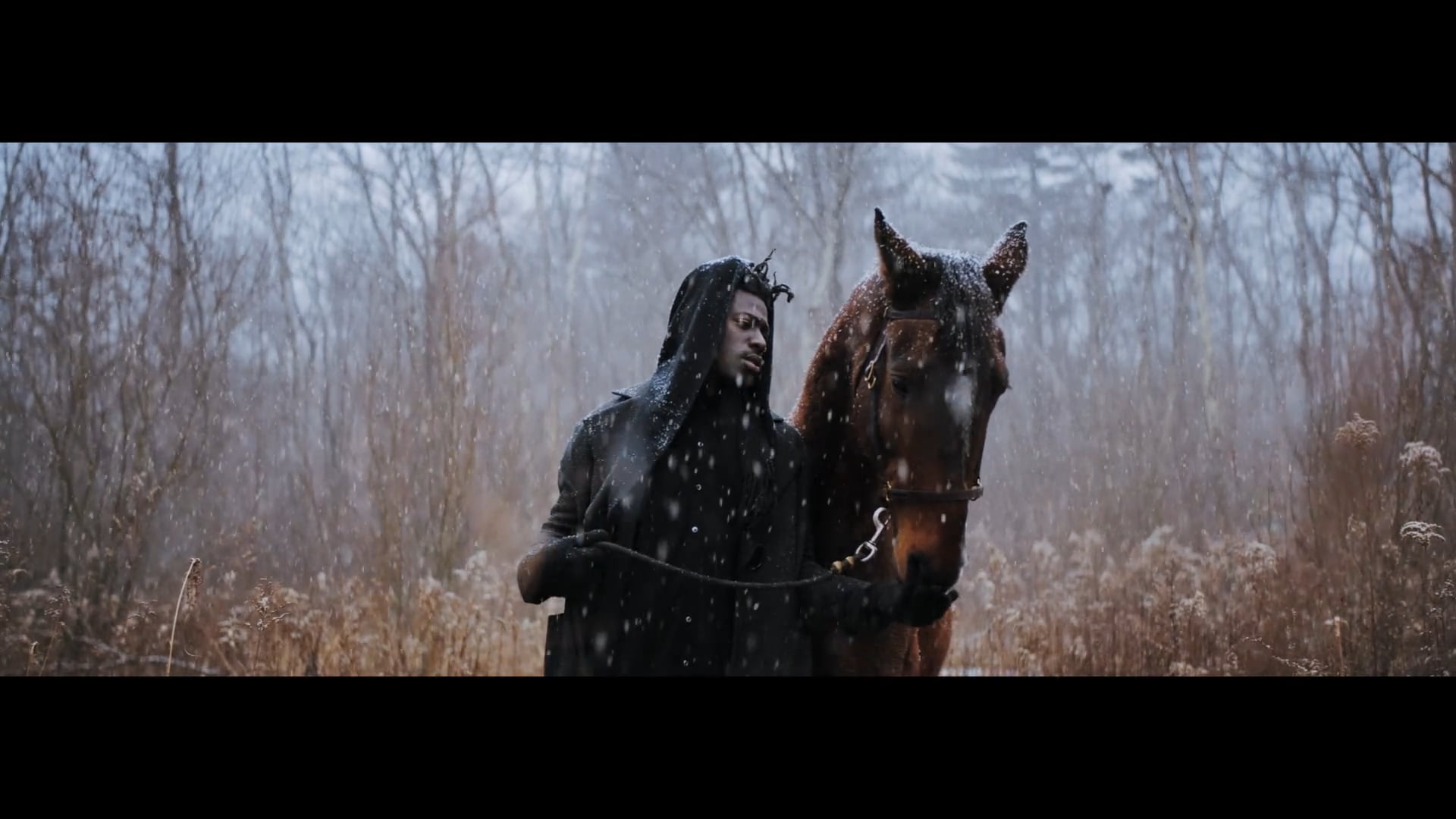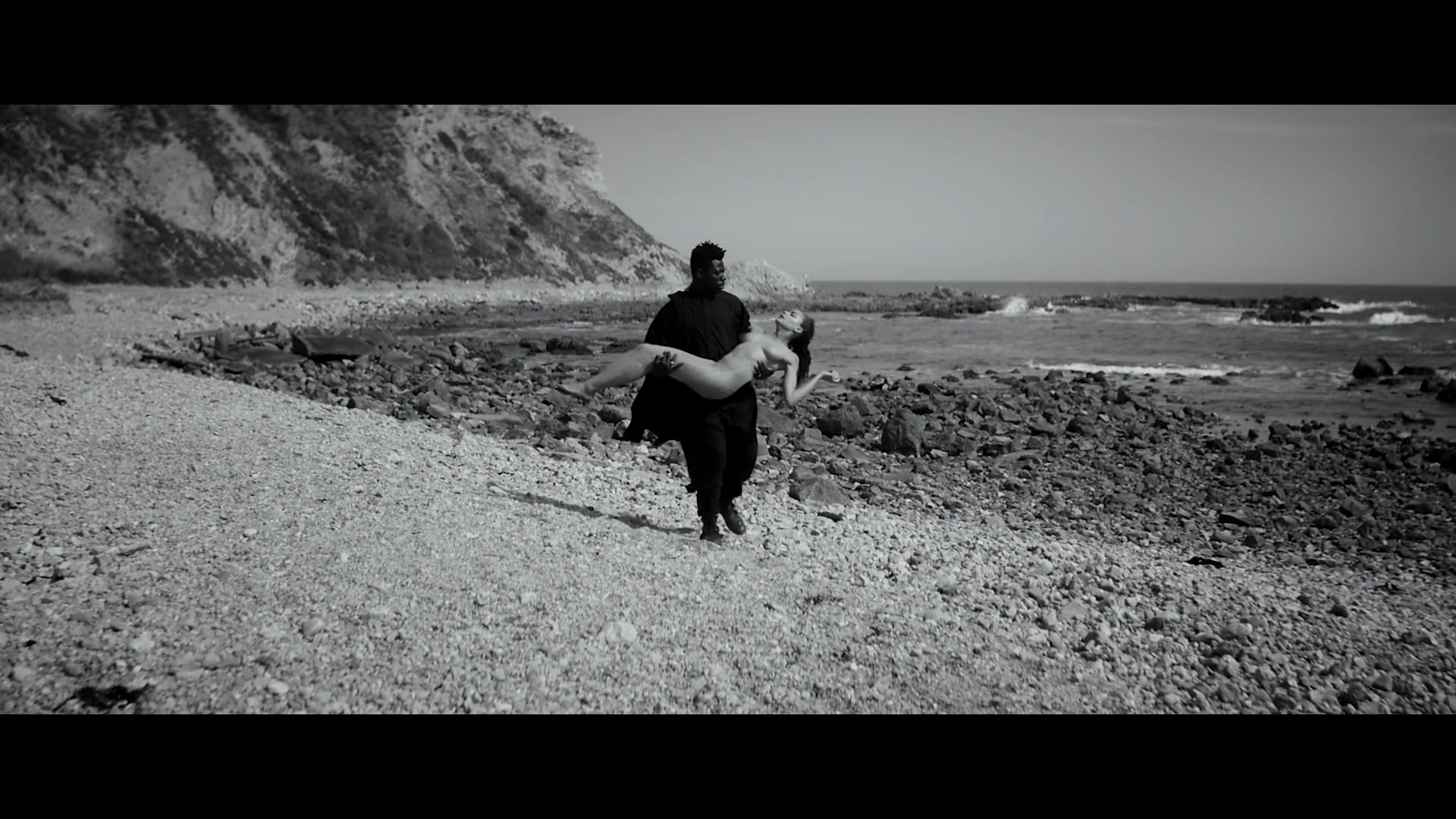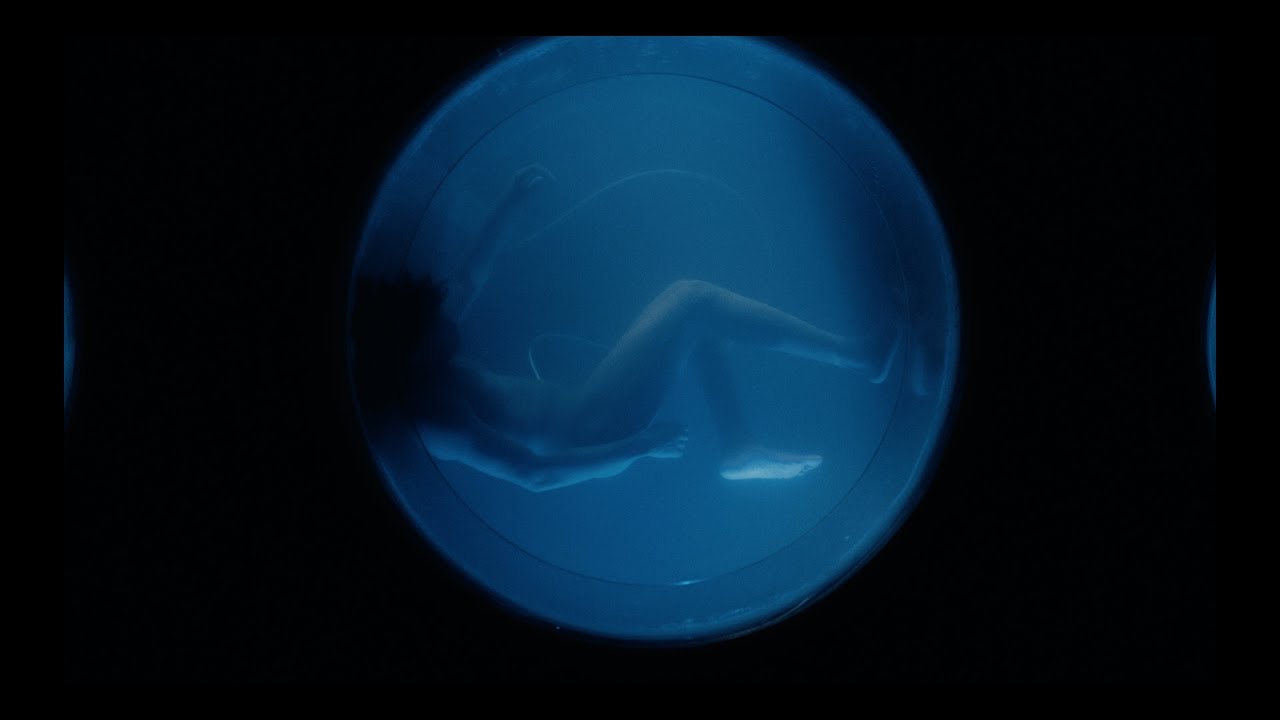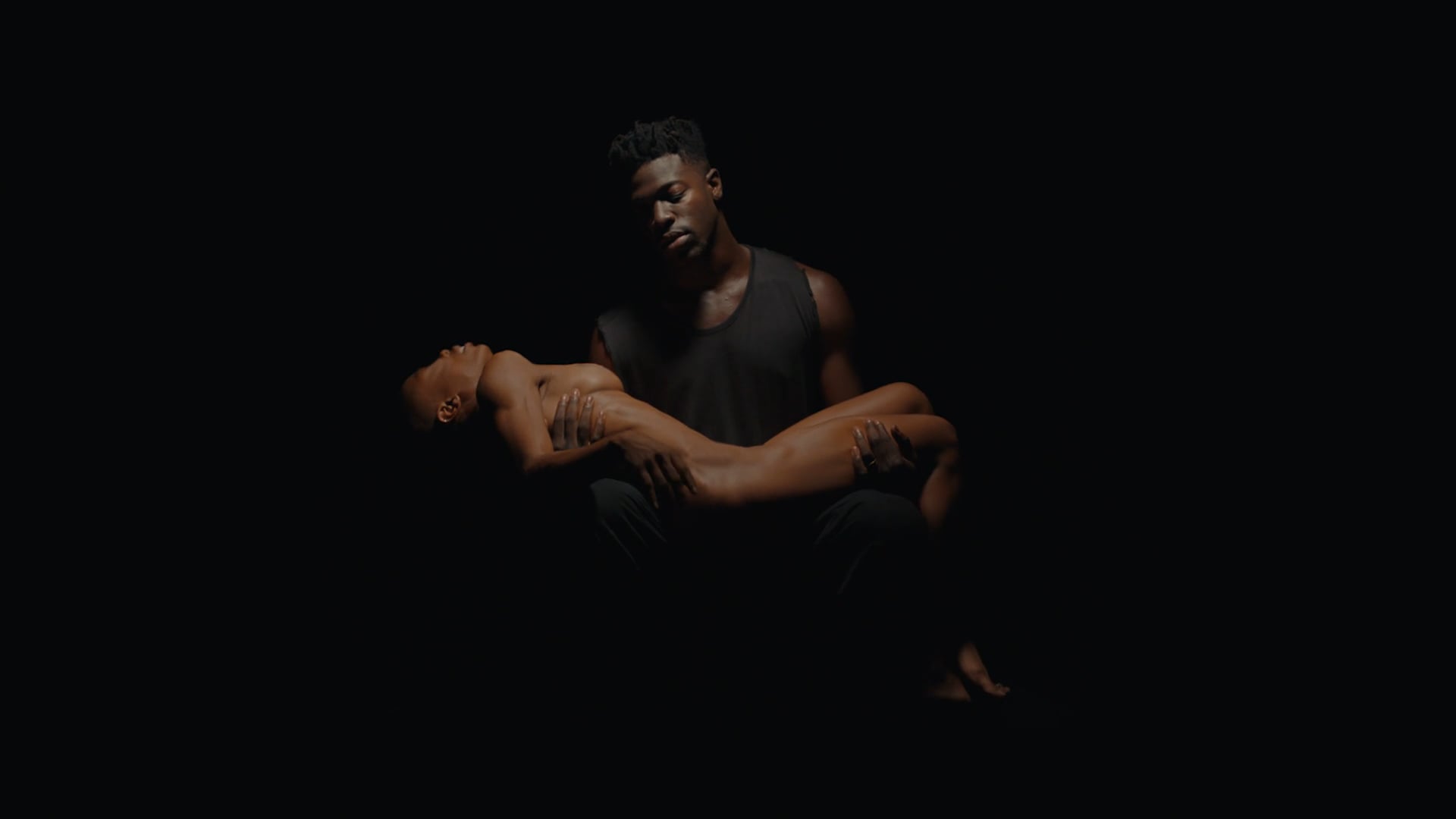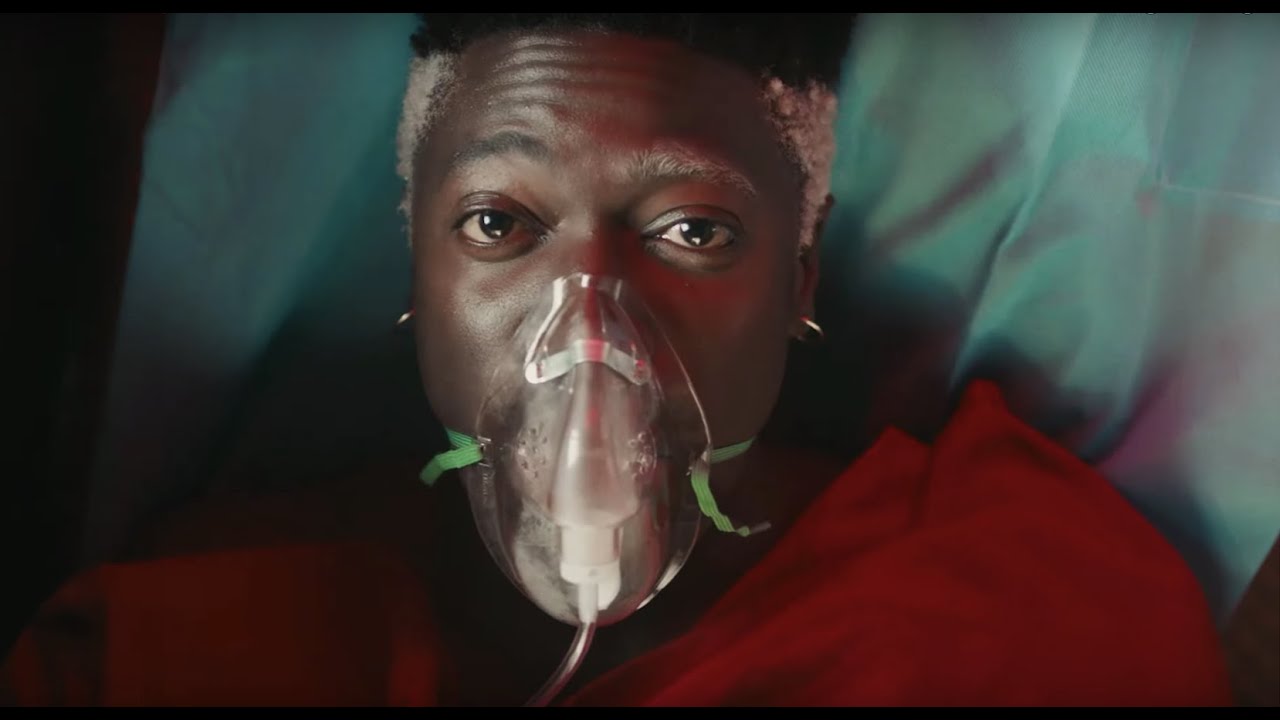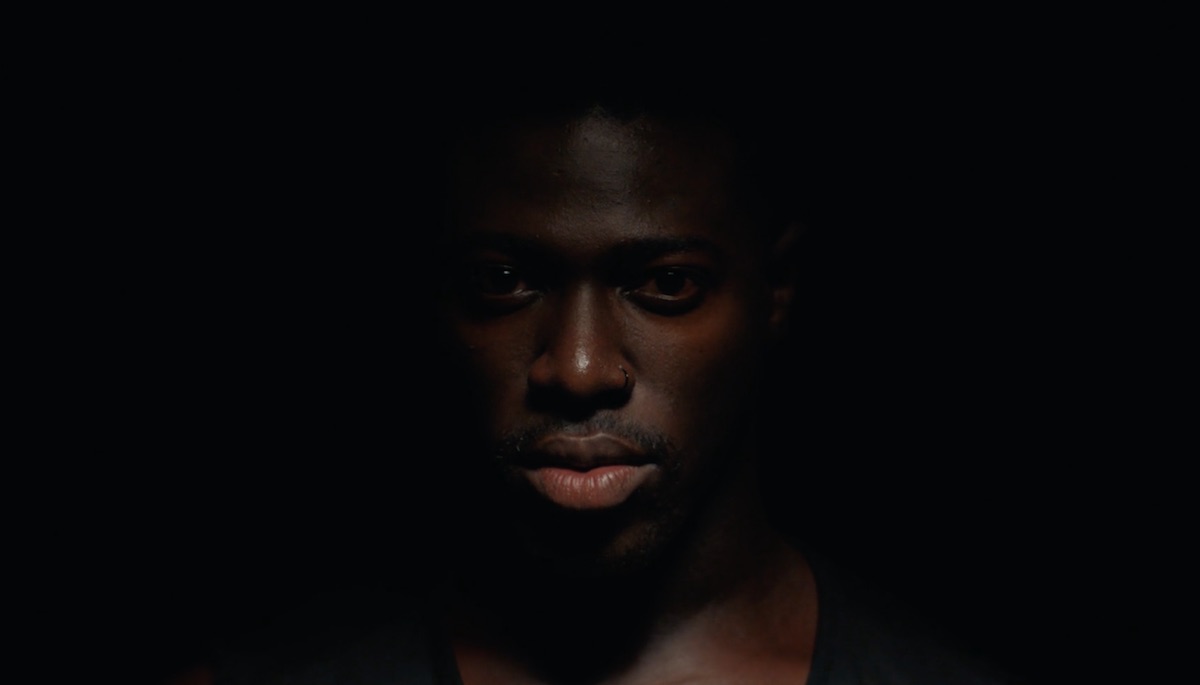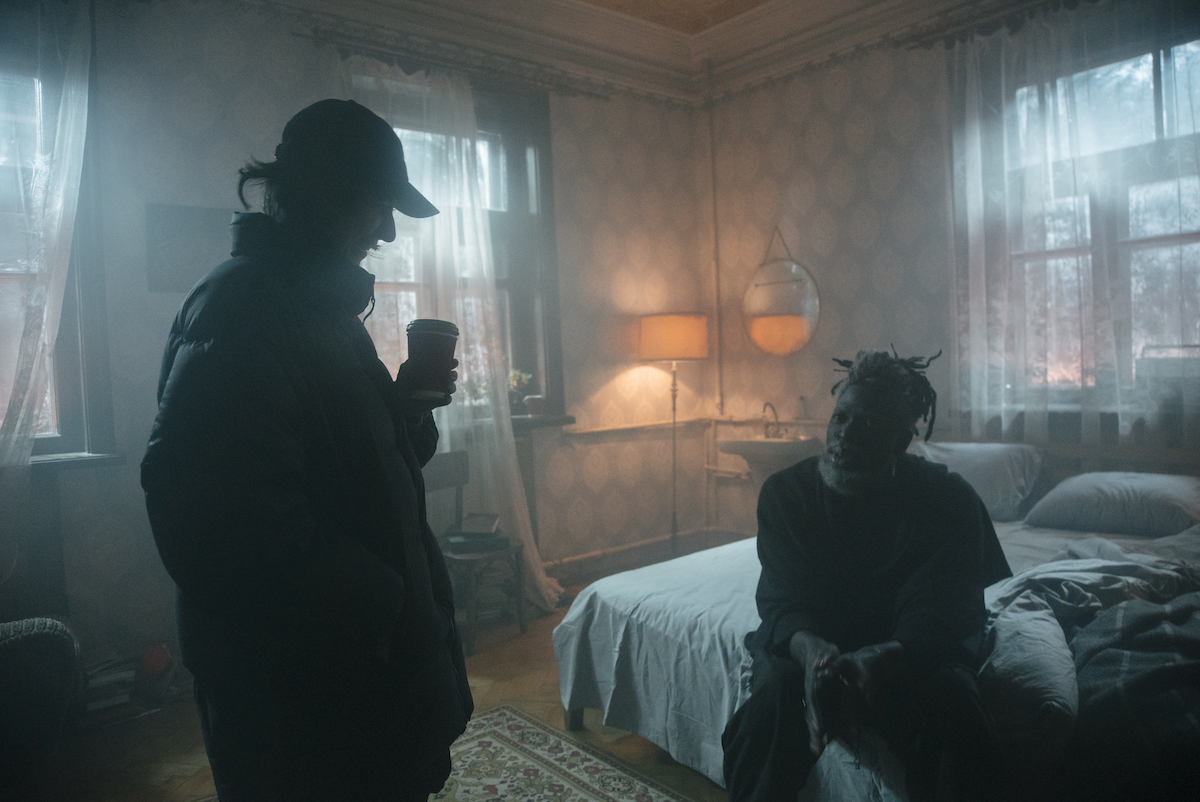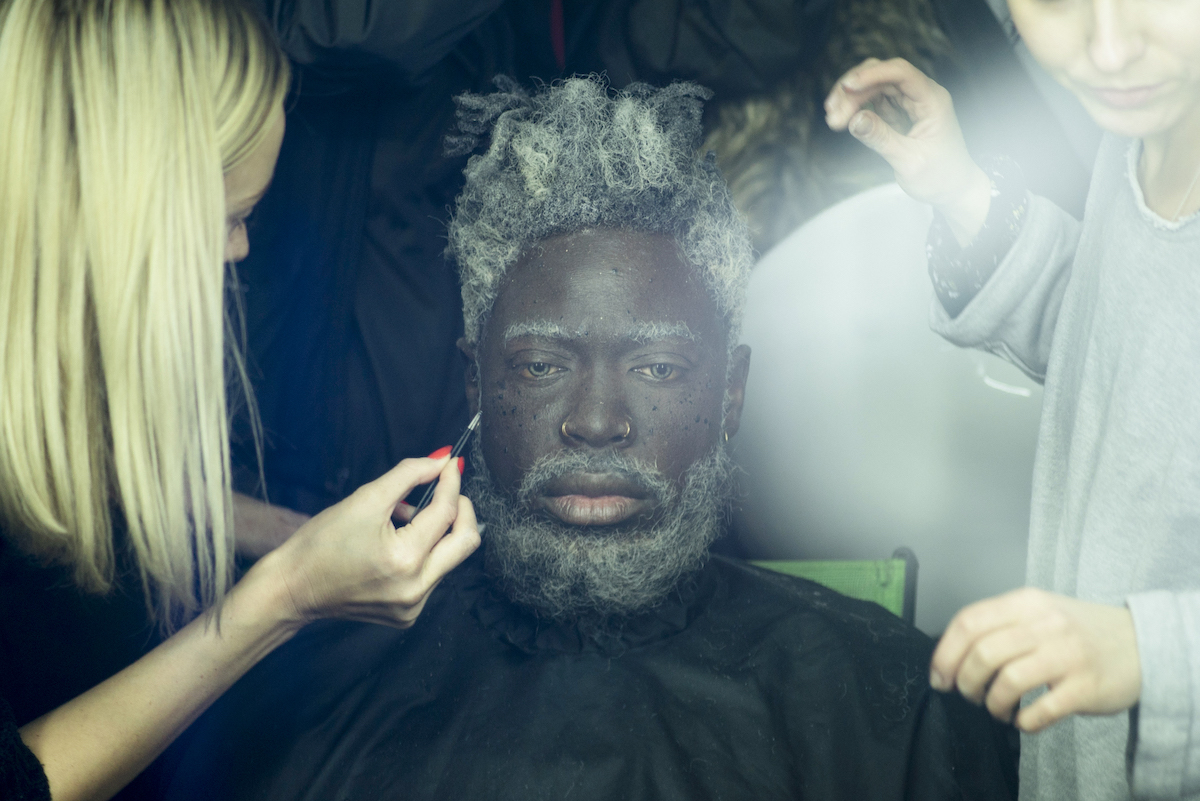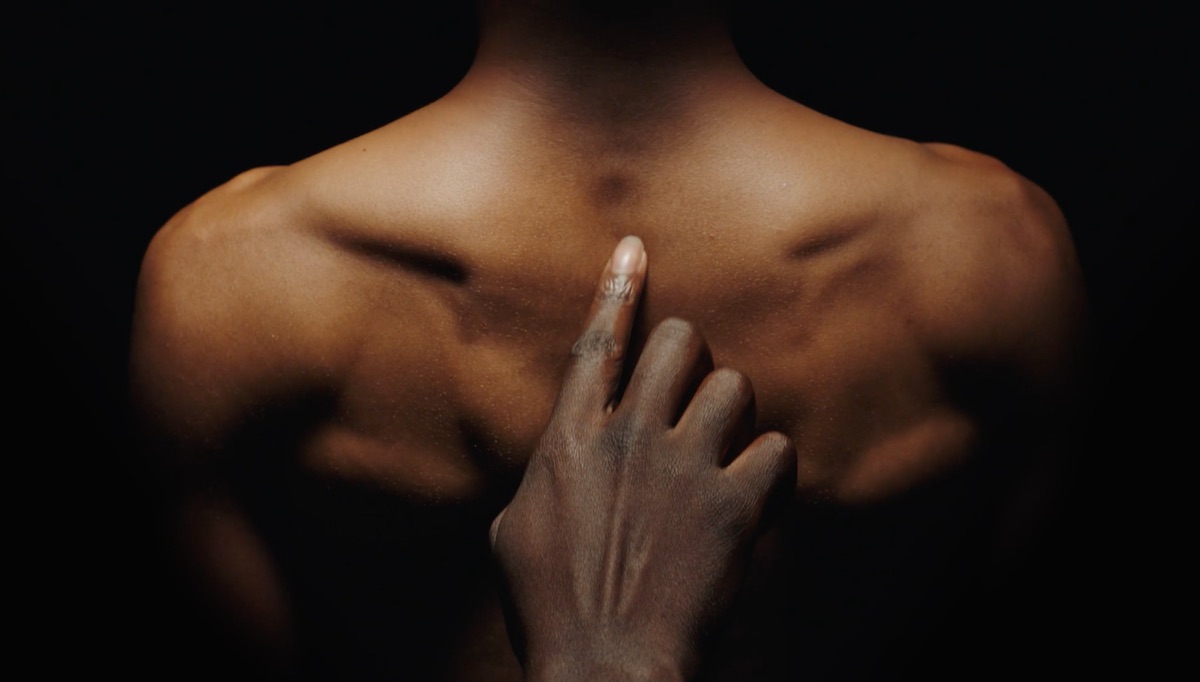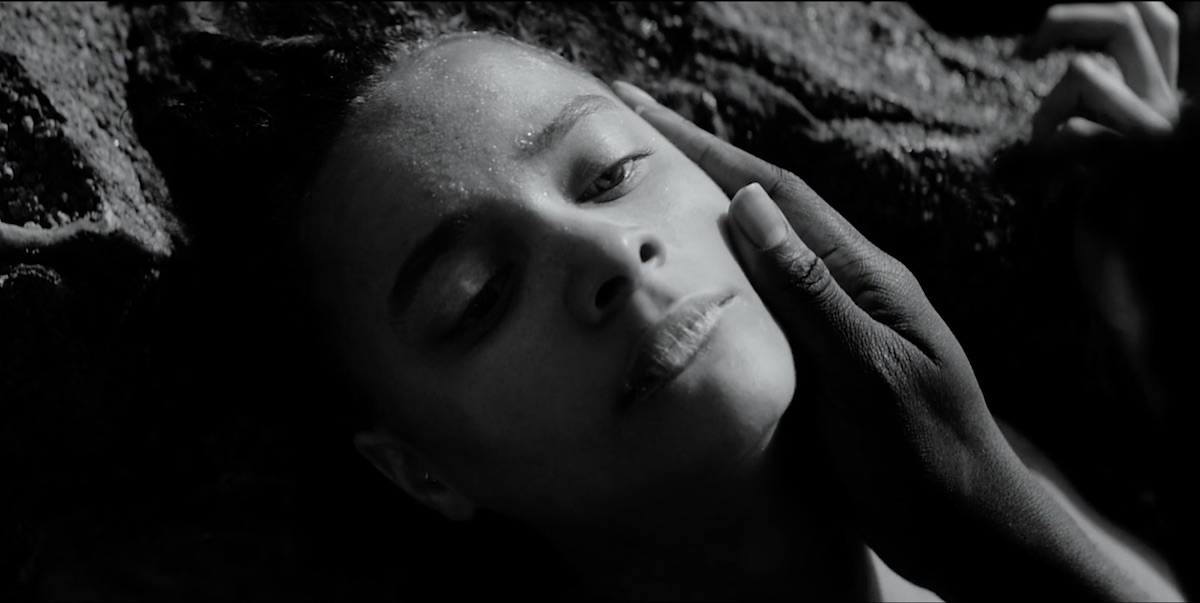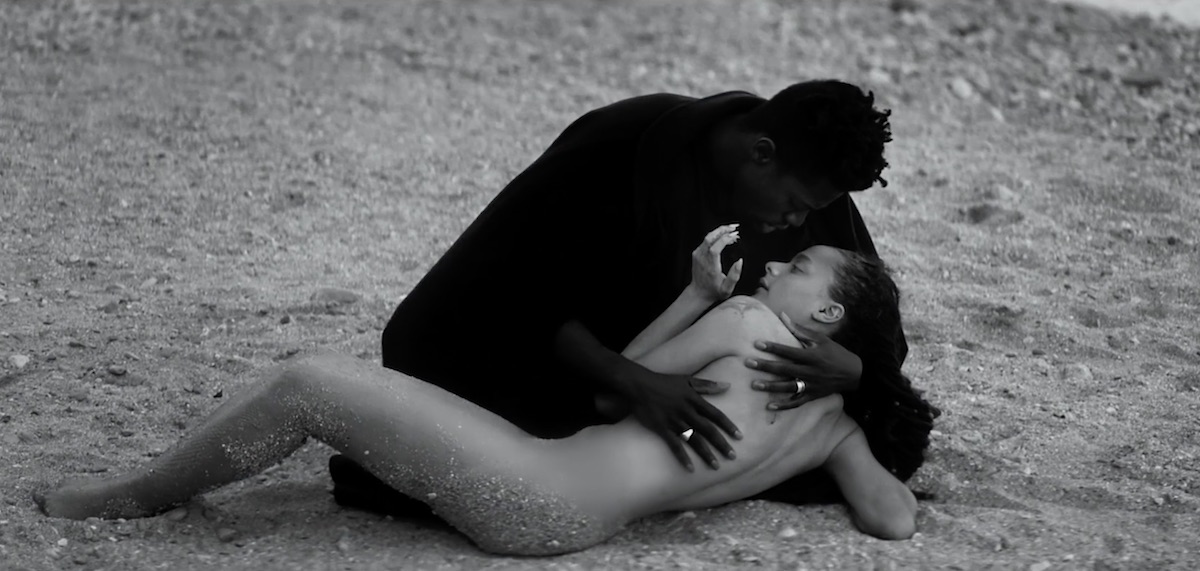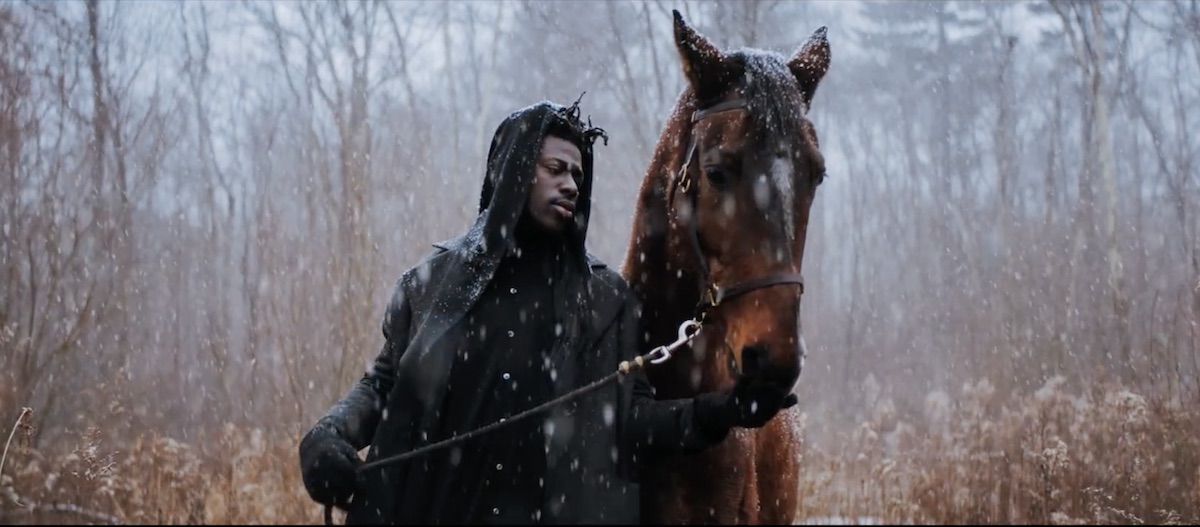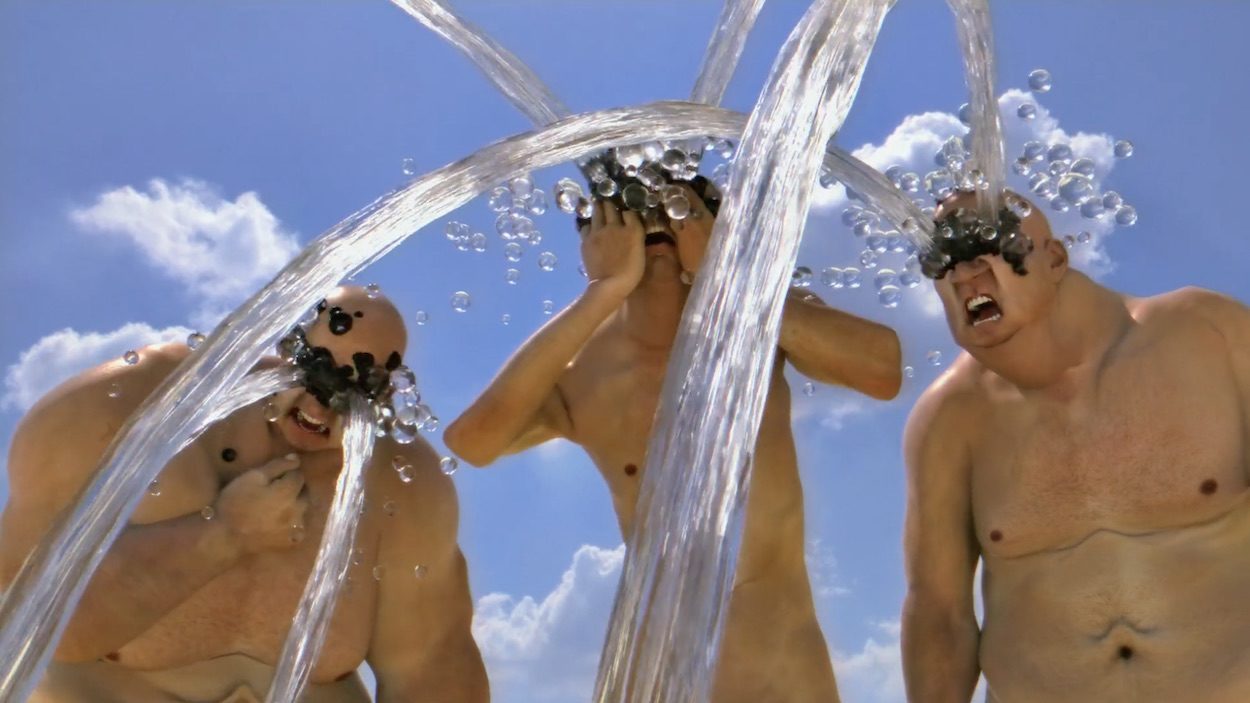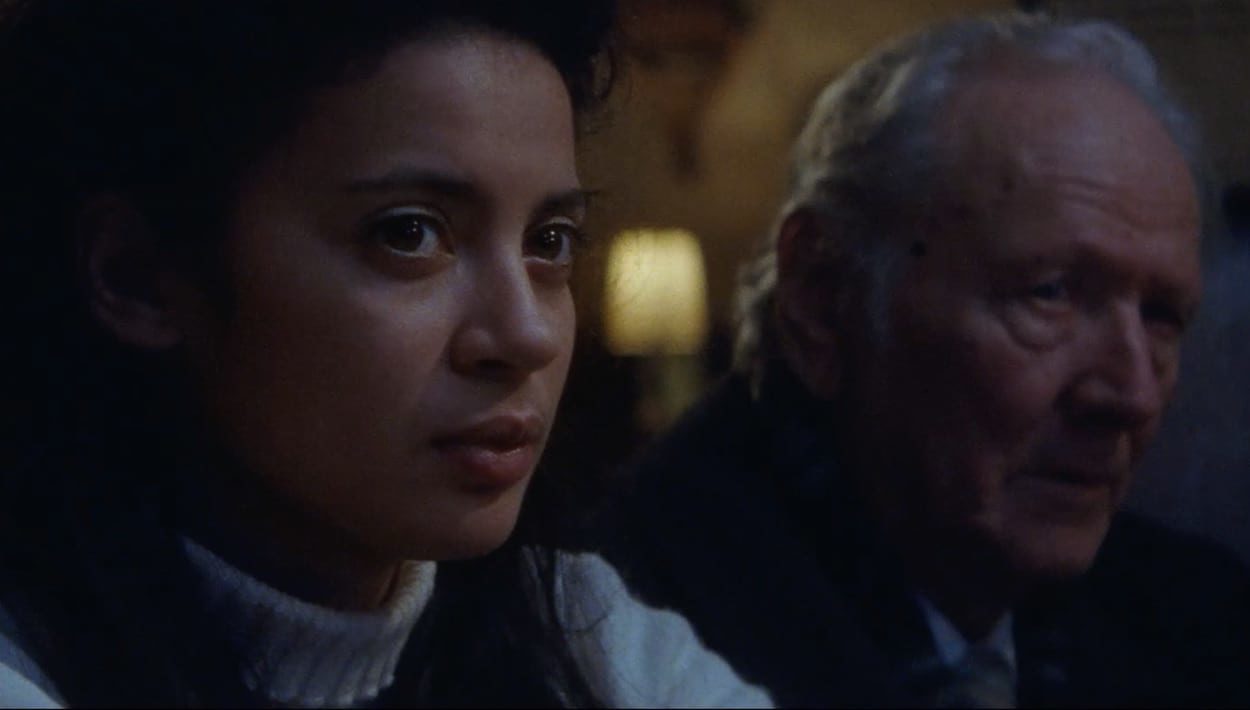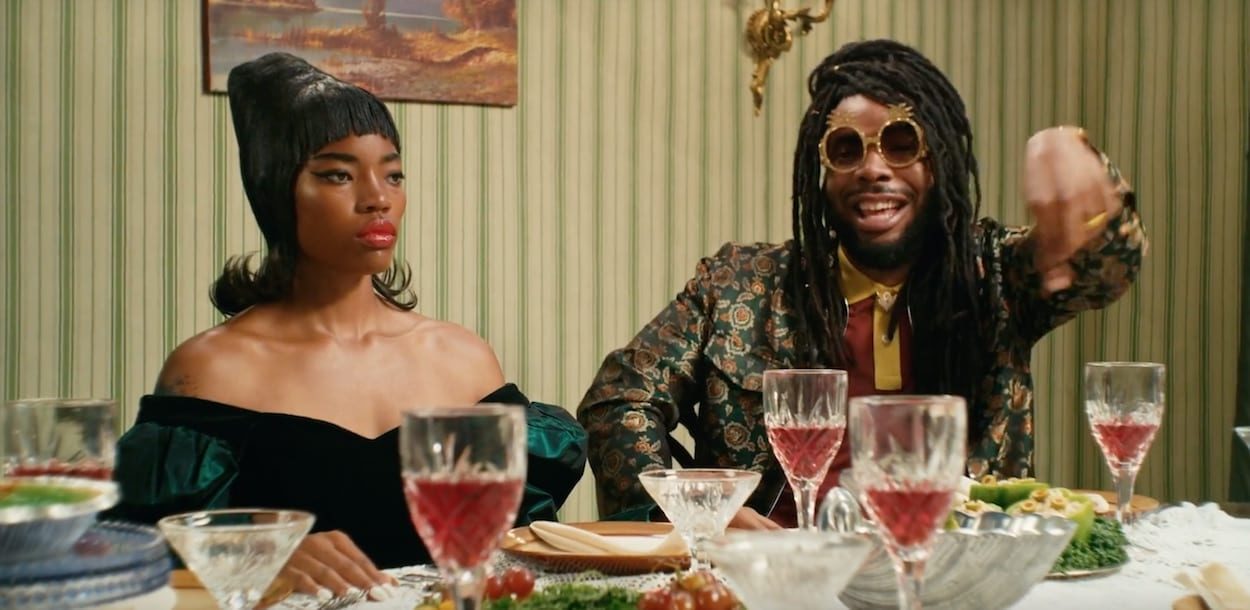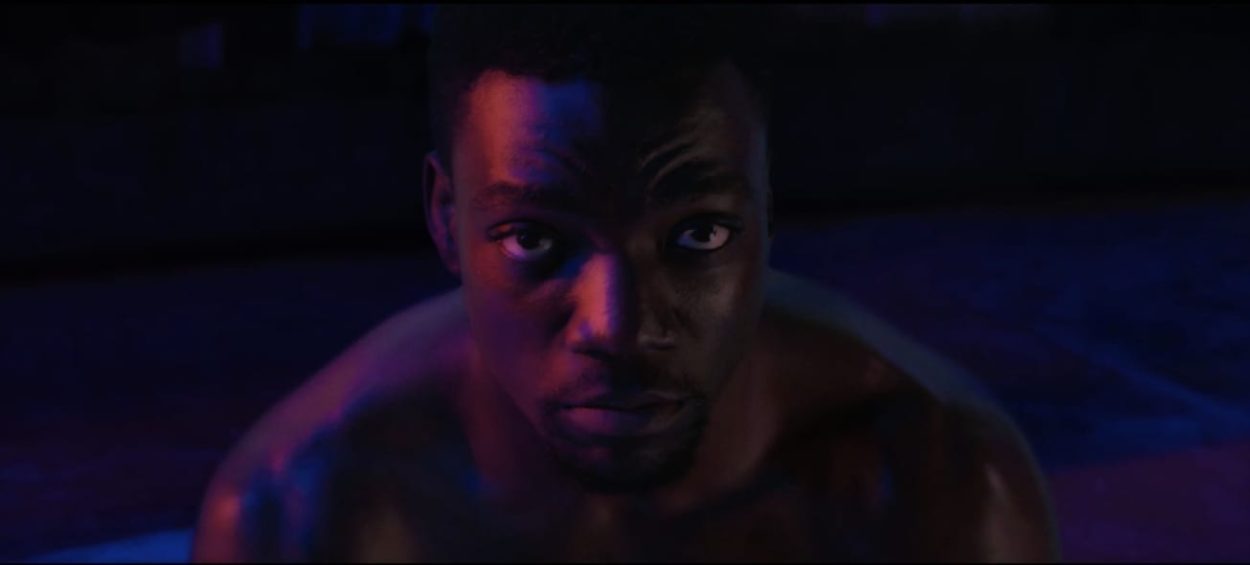Moses, Worth It
You’re both children of immigrants brought up in the States – but from vastly different cultures. Moses your Ghanian parents took you back to Ghana for some of your childhood before returning to California and Allie your Russian parents steeped you in a childhood of theatre and fashion with Russian being your first language for some time. What influence have these backgrounds had on your creative relationship?
Allie: I think that although our backgrounds are so different, we have that First Gen thing that’s a bit of a masochistic work ethic, and in our process it helps us both be super rigorous with ourselves and with one another. The second that one of us is like “ok it’s good now,” the other will be like “but maybe it can be better?” and it goes on like that for a while. As far as cultural influence, I was raised at a young age with Tarkovsky and very bleak Russian children’s films and a lot of opera, so there’s a certain flavor that I’m sure unconsciously makes it into the work.
Moses: It’s hard to say if there’s necessarily a Ghanaian influence present in my work, as I wasn’t so much raised with art in the household. But I do think there’s a certain international perspective, or as Allie said a first gen perspective, that we bring to the collaborative table… there is an omnipresent sense of otherness that we both share, and I think that’s a byproduct of biculturalism. That otherness is certainly a central characteristic of our work individually and together.
Allie and Moses on set, Me in 20 Years
When and how did you two first meet?
M: I basically stalked Allie and forced her to work with me. I never really wanted to make music videos, and when it became apparent that it was necessary, I knew I had to work with someone who was doing something outside of the box. I found music videos to be incredibly boring. After months of searching I came across Allie’s work and asked her to work with me. I guess the rest is history?
A: So ironic because fast forward to last year and I basically forced Moses to let me make this particular video! 😀
M: Hahaha. I guess we’re even now…
Grey matter, Moses in makeup
What were the initial conversations like that triggered your projects together.
A: I don’t remember specifics but I do know that when I get on the phone with an artist initially, I always kind of test the waters to see how much they’re willing to go in. Our first conversation was about “Worth It” and I remember being really moved by how quickly Moses got to the core of what the song is about – he really knows his own material, if that makes sense. (A lot of artists don’t!) And then when I pitched a very abstract idea that most labels/artists would be like “WTF” about (an undulating human back in a dark space, Moses reaching for it, etc.) he totally got it and was willing to go there. It made the process really exciting and satisfying. And he was so interested in the filmmaking process, which has led to his incredible solo directing work down the line. Ok enough flattery.
M: Haha – “he knows his own work” is a flattering way of saying “he’s self-obsessed,” which… no comment!
I also don’t remember all the details of those early conversations, but I appreciated that Allie was willing to go where most people wouldn’t. Even down to pitching ideas, she would have some odd ones whereas other directors I talked to just weren’t pushing enough for me. Even so, I could tell that there was a little bit of a filter. And so I would encourage her to go deeper or darker with ideas, and that helped me do the same. It became apparent that we were both unafraid and interested in the underbelly of emotions, or society. I think I also felt like I could learn a lot from Allie and I didn’t feel talked down to, which I had from some others…
A: Yeah, you don’t let anything go unnoticed. I’m held super accountable every time, which I appreciate. I guess by “knows his own work” I mean that he has a really thorough and cohesive thesis of sorts, so it’s thrilling for me to take a lot of the imagery that’s already there and bring it to life, rather than over-complicating it or trying to impose some totally arbitrary concept. The music is really visual so it’s an inspiring starting point.
M: Thank you!
Worth It
There’s a sense the work is very collaborative from an artistic point of view, with Moses as the key figure in the narratives, occasionally lip synching to some lyrics but never a performance video. Could you please talk about the process. For instance, Moses when you’re writing your lyrics do you visualise filmic scenes simultaneously? Or do you send Allie the lyrics and she works on a treatment then you both discuss…
M: I remember when we first talked I was so anti-lip synching. Allie really had to push me to do that. And I loved the idea of the video being really dark – me emerging from this dark background – because I really didn’t want to be seen. Something about being on screen and actually in the videos really made me uncomfortable. I appreciate that we’ve kept lip synching to a minimum in our work, and the times it’s employed it feels very outré (like in “Doomed” – lip synching underwater in slow motion while possibly dead?). Over time I learned the importance of it and I did end up doing more of it when I directed “Cut Me,” cuz I finally understood its usefulness… but I digress…
I don’t necessarily think filmically when I’m writing songs. But when I start to think of visuals, sometimes an idea or a color palette or a texture jumps out at me. “Doomed” and “Quarrel” are good examples of that; knowing I wanted to be trapped in water in a box and in a love story with a horse, respectively. Ultimately I do send Allie the lyrics and she comes up with ideas and interpretations of her own, and it really is a collaborative refinement, a coalescence of our ideas, right up to the finished product.
A: Yeah, every project has been different, but regardless of where the idea came from, Moses is always super involved in every aspect, from location scouting to color correction and everything in between. The nice thing for me is that we’ve never had a formal process of me presenting a polished treatment before it’s been discussed, a situation that can be so alienating and rarely leads to good work. There’s always been long conversations before that, so that it’s being borne out of some unconscious shared brain by the time it’s on screen. I do remember before we settled on the idea for “Lonely World” we had some other one where a woman is trapped in a house and has monsters that are pushing out from behind the walls and from under her skin. Moses was like “nah” so we moved onto another one. But all in all, they’ve all evolved really organically. Also for the record I very rarely want lip-syncing! But I think in Worth It and Doomed, it added a human emotional element that worked.
M: That is very true. I loved the process for “Lonely World,” it was one of the rare cases where I truly had no ideas around what the video should be. I appreciated that I could tell Allie that I didn’t like the initial idea and she just like… came up with another one. It also felt good to not feel the need to pivot to another director, which I suppose is common when you don’t like an initial idea, because I knew Allie understood the heart of the song.
A: Haha I’ve learned to be tenacious and ego-free with this stuff, you have to in this industry! Must be the First Gen thing too, where I’ll just keep searching till it’s right.
M: Allie I wonder what your experience is like with other artists — is it as collaborative? Are you ever relieved when you work on a project and the artist/client isn’t super particular about the nitty gritty details?
A: It really varies so much, but lately I gravitate either to artists who totally trust me and let me take the reins, OR have a really like-minded vision (which is rare I think in any director’s career to have more than a few of those). It’s the in-between that’s really difficult – where they want it to be “weird and cool, like your other work” but they don’t realize that then they have to take risks and put themselves on the line in some way, or be willing to tackle more meaningful subject matter. You can’t just emulate that aesthetically.
Lonely World
There’s a seam of symbolism and metaphors which runs through your film language. Do you both think similarly in creating these beautiful, surreal, mythical sometimes and always poetic, narratives or are there points of difference? In fact are there ever strong points of difference and how do you resolve those?
A: Honestly, not really! I think individually we’re pretty stubborn and opinionated people, but together we kind of pick our battles and find a middle ground on the little things. That, or Moses gets his way. 😀 On “Me In 20 Years” we were up late the night before the shoot having a “disagreement” about a timing thing in the video, and it seemed like a big thing, but then later I realized that it was literally a matter of 7 seconds in one direction or the other – basically minutiae, but we had to get it right!
M: Oh yes. One thing I have learned in filmmaking is that there is no detail that doesn’t matter. Minutiae matters. Actually the minutiae is usually where you find the meaning. I certainly think that’s the case in our work — the little easter eggs. We do have our disagreements, but we are both pretty respectful communicators, and so we are able to talk them through, although they turn into long talks… we’ve both been on sets where white dudes throw fits when they don’t get their way, and I think we were raised better than that haha. Or we know we don’t have that luxury. Anyway – any disagreement is because we share the quality of seeing stories in this mythical, often surrealist way. So I find that we’re often saying the same thing, albeit differently at times. And when one of us doesn’t get their way (sure, I’m unfairly advantaged to get mine when we’re making my videos – though not always!), I think we eventually realize that the other is right. Am I painting us as too harmonious? Haha.
A: No it’s pretty accurate. Like the milk thing! Moses was really into the milk scene in “Me In 20 Years” but I wasn’t sure at first. But then last week I texted him and was like “okay you were right, it works.” I think it added a lightness and complex symbolism that it took me a while to appreciate. Also, *the men throwing fits* thing is so real.. Although that sounds like gossip I’ll have to hear about later?
M: Again… no comment. No use crying over spilled milk!
Cinematography plays a key role in your work together – do you make joint decisions on the crafting of the films? Is everything usually locked down in the pre-production? Are you both involved in the edit?
M: Hard to say! For the stuff Allie has directed, cinematography has been more her direction… I learned what cinematography was in real time, on our videos. Sometimes I have ideas but wouldn’t have been able to tell you that they were photographic ideas, because I didn’t possess the language… in the 2-3 videos I’ve directed, I’ve taken the reins a little more in regard to cinematographic specification. But it’s nice to let Allie handle that when we collaborate. We are both heavily involved in the edit. I just have way too much feedback to not be… it really bothers me to not be able to get in the room physically with the editor.
A: Yeah, I love working side by side with the DP, and in “Me in 20 Years” the cinematography process was very involved. We were planning for a lot of VFX, stitching together drone, dolly, and steadicam shots (the opening and closing shots of the video), establishing the lighting look, shooting it digitally, doing a preliminary grade, then scanning it all on 16mm, and then grading on top of that, so it had to be thoroughly planned out before the shoot. And yes, to say that Moses is involved in the edit is… an understatement.
It’s been a very enduring relationship – what is behind the decision to work together on specific videos while some tracks you have begun directing yourself Moses. We thought Cut Me couldn’t be more apposite for the current times, especially with the frontispiece image of Moses in a mask, and then we saw Me In Twenty Years which could sum up how many are currently feeling? What triggered these narratives and did you manage to shoot them before the lockdown?
M: Well leading into this album cycle, the elephant in the room was that after four years of collaboration, Allie was the only director I’d ever worked with (and still is). We’d done four videos together, and I was curious to work with and learn from other people. She was also moving away from music videos and in a more narrative, long-form direction with her work, having just completed shooting a short film. So it made sense to part! I tried to get others to direct “Virile” but after months of searching, and locking in a non-committal director, I just couldn’t find anyone that clicked. But I’d had the concept for the video a full year before the song came out, and my producer Whitney Jackson (whom I met working with Allie on “Lonely World”) suggested I just direct it myself. So I did, reluctantly, and nearly died. Next we shot “Me in 20 Years,” and I was fatigued, and didn’t have any ideas for it — even though it was my favorite song from my 2nd album græ. And Allie had tons. So even though we had agreed to “split” (conscious uncoupling), we reunited to film it in December of 2019. “Cut Me,” shot in February of this year, was another song I already had the idea for, so I decided to take the leap and go straight to directing it myself. It just felt so personal and I knew I wanted to do something funny and tonally different for once. In a lot of ways Allie was right there with me for my solo directorial turns — she was the only person I really turned to for feedback, and of course I learned so much about directing just from watching her on our five (!) video shoots. But yes, it’s been a crazy coincidence to see how these videos connect with the general emotional themes of lockdown.
A: I mean I’d be lying if I said I wasn’t a LITTLE bit relieved that he didn’t work with another director. I know it will happen one day and I’ll have to get over my jealousy, but we agreed at the time that it was good for him to have that experience. But seeing him directing on his own and truly nail it has been really inspiring. For “Me In 20” the ways it’s eerily prophetic is totally incidental, as it was shot in December. With that song I knew I would be heartbroken if someone else made it. I remember sitting on a bench in Queens and listening to it on repeat, and before we had even talked about it (it took me a while to convince him to let me do it), I didn’t have any specific ideas yet but I remember just this really strong feeling that came over me. And then when we talked about it and he told me the lyrics and what it was about, I basically just responded with “well let’s just make that.” It was all there in the lyrics – the aging, the crater in the bed, and the mood. From there we evolved it collaboratively over several weeks, down to the last moment.
M: Allie what are your favorite videos of ours? Actually – can you rank them in order of preference?
A: It’s like trying to choose between your children, Moses.
M: You’re right. Don’t take the bait.
Has lockdown been an inspiring or frustrating time for you?
A: I love being locked down to be honest. I mean, being in New York was really scary at first, we got hit hard pretty early and having grown up there, it was hard to see my city in so much pain. But on a personal level, I’ve been thriving in a big way. I’ve been taking an intensive professional writing/directing master class, writing a ton, reading, just taking a break from the endless hustle of music video/commercial work. And even though I miss dance parties, I don’t really miss that much else. Does that mean I’m dead inside?
M: Yes it does. I must admit I’ve loved it as well. I love being alone. I’ve been stepping outside of music making, instead writing more treatments and stories, watching films and taking pictures. Just trying to learn more about visuals and image-making at an accelerated rate.
Websites:

